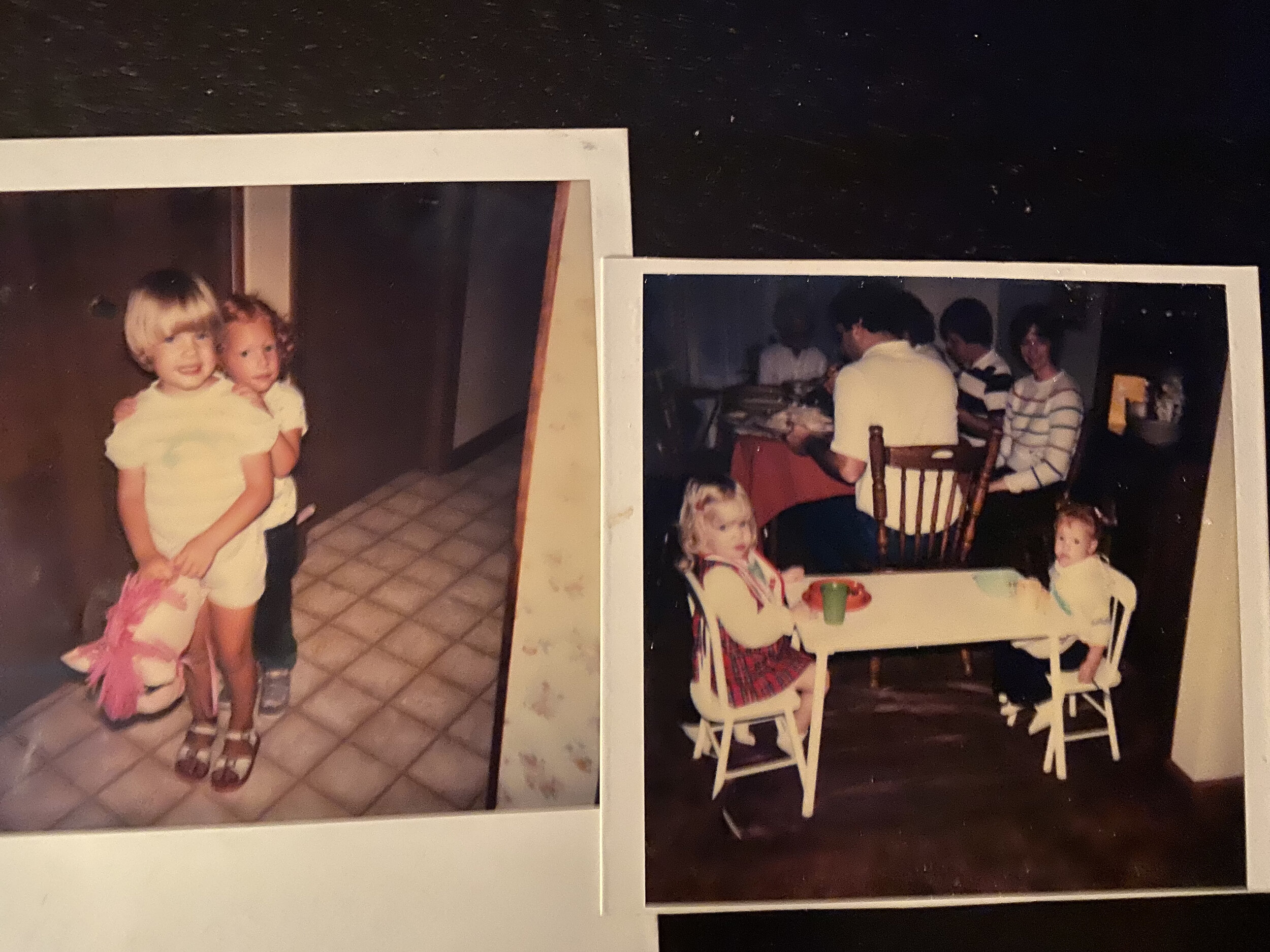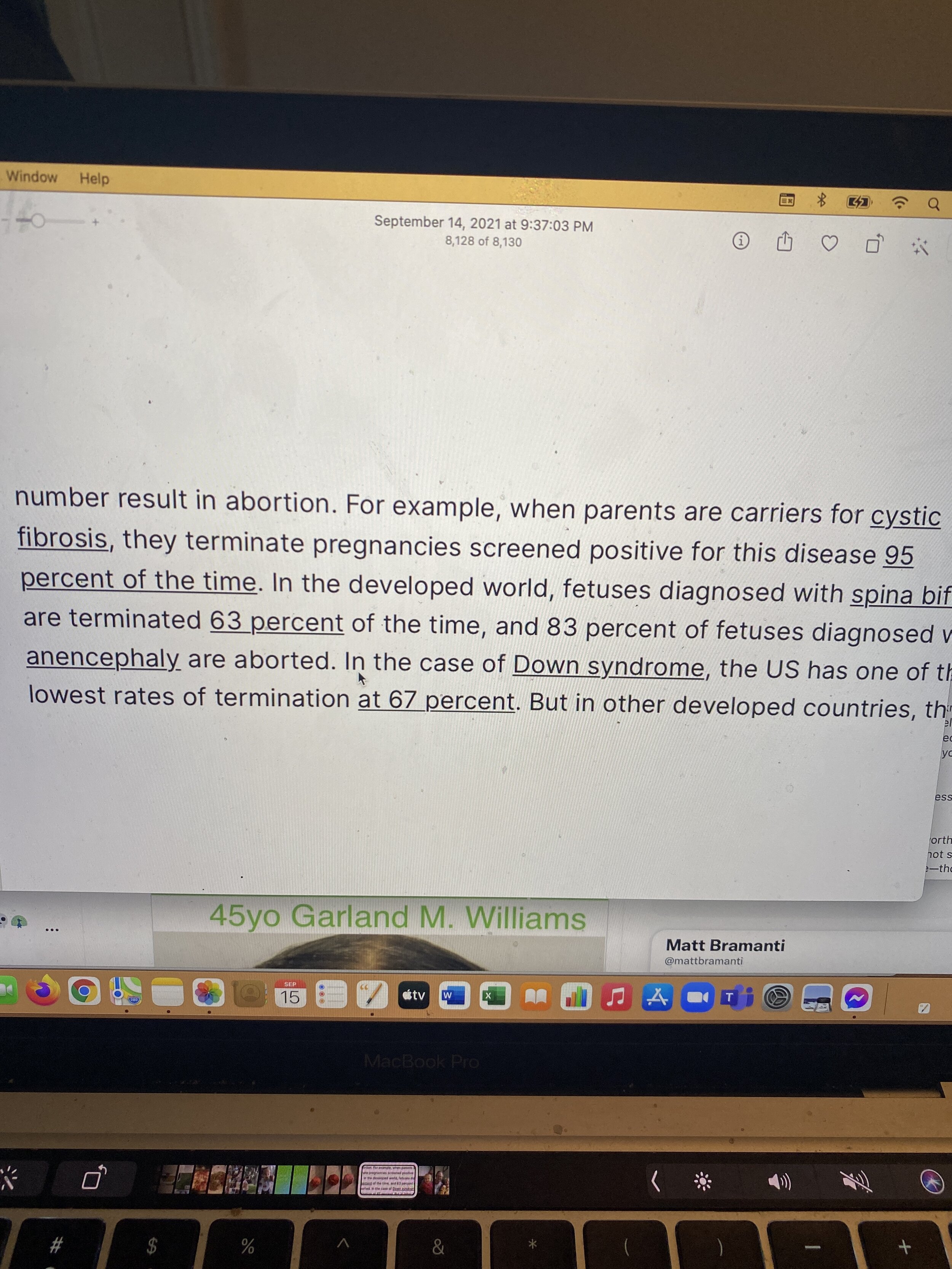Diane and I as pre-schoolers, before my CF diagnosis. (I’m the blonde.)
I’ve never really liked statistics.
First off, they used to not work in my favor. 4% of the CF world gets something? That means I’m getting it. Get a bug that only one other person in the world has had? SURE WHY NOT (says Emily’s body).
Also, I’m pretty sure that my stats professor pity passed me, because I was a senior and needed a math credit to graduate (although I can figure out the number of possible combinations of license plates and combo meals, so….not totally wasted?).
Post-transplant, I tend to make statistics in a good direction—being 16 years post-transplant, for one. That’s a good way to end up a statistic.
However. The following, from an article I read last week, is not a good statistic.
Ninety-five percent of unborn children found to have CF are murdered.
(I will put the link to the article at the bottom of this post, if you want to read it for yourself and check out those links.)
I was first told that I shouldn’t exist when I was 15—a story I tell in my book. But since then, we’ve made amazing strides in CF research. There’s Trikafta and Kalydeco, for starters, which are huge breakthroughs in gene therapy that don’t just help CF—this technology helps people with dementia, as well as other genetic diseases. People with CF are living into their 40s and 50s, instead of their 30s. This is all huge.
But people don’t see that. They see problems. They see suffering. They see imperfection. They see a life that isn’t worth it. A life like mine is not worth it.
This is what I wrote on instagram about this:
I used to be pretty private about having CF. Not because I was ashamed of it, but because I didn’t want people making judgements about my capabilities based on that. I didn’t want their pity and I didn’t want their fear.
But after my transplant, I became much more vocal, because I had to be. Because people “like me”—people with messed up chromosomes—are seen, more and more, as “defective.” As “unwanted”. As “wrongfully born.”
This hit home yesterday, the 28th anniversary of my CF diagnosis. I read the statistic you see up there—that 95% of children diagnosed with CF in utero are aborted.
Ninety-five percent of people like me are killed on a regular basis.
I am a survivor, in more ways than one.
I used to think that I was supposed to be a contemplative nun. In fact, this [9/15] is the anniversary of being told that I wasn’t going to be going on to the next discernment phase with a monastery.
Now I know differently. Now I know that I am supposed to be in the world, telling my story, so that people can see that an imperfect, messed up, “defective” body can still give you a life that is joyful and worth living.
I can become a saint with a messed up chromosome 7.
I am here to show that life is worthwhile, but also, to deeply pray for those who do not see this. People who think that I am disposable—that children like me are disposable.
I want to soften their hearts.
I do want to soften their hearts. But I also want to bring this to light.
There are at least 2,000 CF mutations on chromosome 7. They can’t all be checked for in an amniocentesis. So there are children with CF who are bon, and then we have wrongful birth suits.
The argument behind these suits is that these children shouldn’t have been born, because, they will suffer. They will die.
NEWS FLASH: all of us will suffer. All of us will die. I understand wanting to protect your child. I understand feeling that this is your fault. (Although I’ve never thought it was my parents’ fault. It is what it is. The same genes that gave me my voice, my beautiful eyes, my mind, and sense of humor also gave me CF. It’s the shakes. It’s how it works.)
I cannot imagine how this child will feel, when he is old enough to search the internet, and see that his mother writes about how she doesn’t think that his life is worth living because he suffers.
What it comes down to, really, is this. That we think that suffering is somethign we shouldn’t have to do.
I was talking to someone on twitter about this, and his argument was that we should be able to “select” embryos that don’t have CF or CP or Down Syndrome or whatever, so that we can increase health and happiness. It was sort of like talking to Dr. Jekyll before he consumed his formula.
Health and happiness do not always go together. I’m definitely happier than some healthy people I know. In fact, the strange situation is that having CF has made me more sensitive to happiness, to good moments, to things that deserve to be celebrated. I didn’t get upset over not being class valedictorian (as I remember one girl in my class being). I didn’t get upset about a B-. I had perspective—and still have a perspective—that a lot of people lack, what my dad calls the “macro” view of life. That doesn’t mean that I still don’t get upset about micro (ie, small) things. I do. But it’s not something that’s going to destroy my life or make me question the existence of God, because I’ve learned too many things along the way and seen too much of God’s providence to dismiss that.
But all some people see is the bad side. The treatments. The hospitalizations, the IV courses, the PICC lines. I know that world. I’ve experienced it brutally, and I continue to experience it.
But to wish I didn’t have CF would be to wish I wasn’t me. It would be to wish myself away.
So many people see only what is wrong. They don’t see what is right. Statistics will never tell you that.
Article: “The Moral Panic About Eugenics Poses a Threat to Abortion Rights”.

